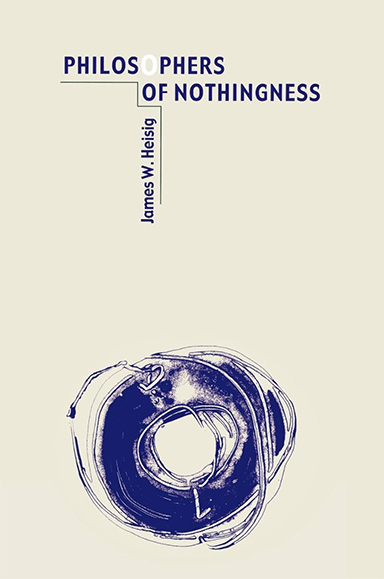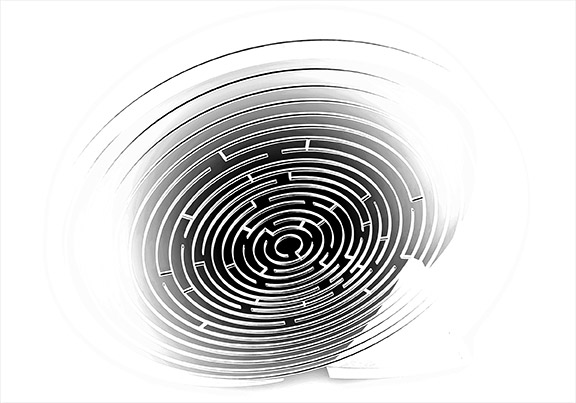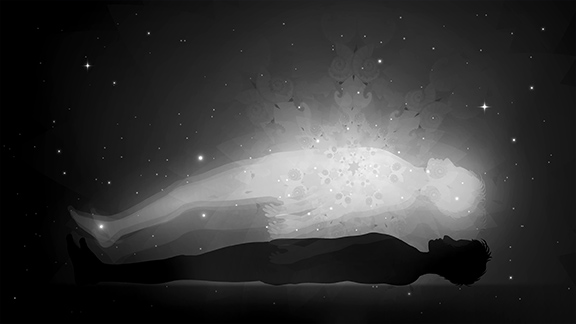Nothing and The Human Condition
A Deeper Look into Our Existence
Though we seem to occupy a physical world full of tangible activities, many are finding new ways to explore the intangible. It is perhaps fitting then that our deepening exploration of the human condition brings us to the peculiar notion of nothing: something that, by definition, provides us with nothing to actually explore! Throughout history, thinkers have pondered the depths of nothingness, from creating philosophical musings on nothing to exploring art based on the idea of absence or voids. It is worthwhile to jump into the depths of nothing and ponder the deeper implications on our understanding of the human condition. In this blog post, we’ll be taking a closer look at the exploration of nothing and its potential to impart greater insight into our existence.

The idea of "nothing" in the human condition is that humans are often presented with existential questions that have no definitive answer. Nothing in this context can be seen as an acknowledgment of this difficulty and a recognition of the limits of human understanding.
What does Nothing Mean?
Nothing has always been a difficult concept for humans to understand. Philosophers, scientists, and artists alike have tried to come up with a suitable explanation of nothing throughout the centuries. On the surface, it appears that nothing has no meaning at all. But if one takes a deeper look, we find that there are many interesting questions to consider: Is it possible to create something from nothing? Can nothing exist without something? If something is removed does it still count as nothing?
In the book, Philosophers of Nothingness by James Heisig, the author discusses how the Japanese Kyoto School assimilated Western systems of philosophy and fused them in creative, stimulating ways with “nothingness.” He introduces the school’s three main philosophers, beginning with Kitaro Nishida (1870-1945), who argued that “nothingness” comprised the ultimate reality. Hajime Tanabe (1885-1962), heavily influenced by George Hegel (1770-1832), by contrast argued that “nothingness” comprised not reality itself so much as a dynamic idea capable of challenging our assumptions about “reality.” Nishitani’s philosophy had a distinctive religious and subjective bent, drawing Nishitani closer to existentialists and mystics.
To buy the book, Philosophers of Nothingness: An Essay on the Kyoto School (Nanzan Library of Asian Religion and Culture) go to amazon.

Philosophers of Nothingness by James Heisig
While some philosophers argue that no object exists without something else, so nothing can’t exist as an absolute, other philosophers assert that nothing must be an entity in itself and can create itself into something, thus leading us to question what lies beyond nothingness. Furthermore, some believe that nothing is actually "something" because it gives us a way to measure existence and show contrasts between two opposing ideas – for instance, having something versus having absolutely no thing at all.
It's clear that there is no definitive answer as opinions on this subject vary greatly depending on who you ask. It seems like a quintessential example of paradox*.
*paradox: a statement or proposition that, despite sound (or apparently sound) reasoning from acceptable premises, leads to a conclusion that seems senseless, logically unacceptable, or self-contradictory.
 g
g
Consequently any attempt at explanation is likely to reveal more questions than answers regarding what exactly falls under the heading of “nothing”. However one chooses to interpret it, the concept of nothing remains deeply inspiring when we explore our collective identity as humans living within an ever-changing universe. As we connect new dots between what we already know about the world around us and what lies behind its unknown depths, let us take pause to consider the significance of nothingness in human existence. By examining how our perception shifts according to its presence or absence in different contexts, we may gain an even greater appreciation for a reality framed by such an endlessly fascinating concept.

Nature of the Human Condition
The exploration of nothingness and the human condition is a complex matter, as it connects to understanding our existence, mortality, and purpose. The nature of the human condition encapsulates numerous variables such as voluntary or involuntary life decisions, physical wellbeing, economic status, and more. As unique individuals, we are bound to our own limited perspective on these matters due to our deeply personal internal dialogue. Naturally, this internal dialogue can have a great impact on how we interrogate the greater scope of life’s grandeur.
What is arguably the most confounding aspect of human behavior- that being our capacity for both good and bad- is also an integral feature of the human condition. It begs the questions: What motivates our positive behavior? Are there environment factors that shape negative priorities? Debate continues to swirl around these issues without consensus on a single answer or perspective. However, it does not take away from the fact that understanding this paradoxical nature of humanity is fundamental in deepening our understanding of ourselves better. Our collective experiences can shed light on who we are; individually and collectively.

When exploring the relevance of nothingness in relation to the human condition, one must consider whether it's absence provides insight into determining what truly matters in terms of connectivity and belonging. Ultimately, differentiating between aspects such as need vs want helps shape how we seek fulfillment in both materialistic desires and relationships with others. This debate forces us to prioritize certain values which can affect all facets of our lives such as professional choices, family planning, and socializing endeavors.
Regardless of where one stands in these debates surrounding the nature of the human condition', it presents an opportunity for us to expand on self-exploration based on personal values and perceived notions. In order to grapple with these questions further, exploring individual components pervasive in most societies becomes essential for broader comprehension and insight into what drives life decisions from person-to-person. Exploring aspects such as environmental influences or cultural norms helps create a well rounded analysis on why humans make decisions like they do. With this said, diving deeper into the various aspects of the human condition promises sustained growth if properly navigated and analyzed with an open mind.
The human condition is an encompassing term for the struggles, joys, and complexities of being human. Many people believe that aspects of the human condition in some way inherently limits our freedom and makes us vulnerable to suffering, particularly when it comes to our mortality. On the other hand, the realization of many aspects of the human condition can allow us to experience empathy and connection with others. Therefore, while accepting or denying aspects of the human condition can have either positive or negative effects on how we navigate through life, there will always be a duality between good and bad.
For instance, since humans are deeply social creatures with an instinctual desire to feel wanted and accepted within society, this can increase feelings of anxiety and depression if people feel alone and disconnected from their peers. However, embracing one's interpersonal relationships can open oneself up to giving love and receiving love. The capacity to develop meaningful connections can bring immense joy and fulfillment into one's life.
Likewise, as humans we possess numerous emotions such as happiness, sadness, rage, etc., that could either damage or enrich our lives based on which emotions we choose to succumb to most often. We could opt to live from a place of fear and hate or choose instead to believe in optimism and act from a place of kindness.
Ultimately, each aspect of the human condition reveals potential opportunities for growth both emotionally as well as spiritually. As we become more aware of these various facets of life—and more importantly how they affect us—we become better able to make choices that help create meaningful experiences for ourselves and those around us. This awareness is necessary if we are to appreciate fully the preciousness of our time here on Earth—a reality that will eventually give way to an understanding of our mortality and existence.
Awareness of Mortality and Existence

The awareness of mortality is an essential component of the human condition that has been widely discussed by philosophers, writers, and other thinkers throughout history. For most people, understanding their mortality tends to evoke fear and insecurity, so much so that some may even try to deny it.
Read this fascinating 2012 article by Hans Villarica in the Atlantic How the Unrelenting Threat of Death Shapes Our Behavior
Social Scientist Roy F. Baumeister argues that facing one's own mortality is one of the most important tasks a person can undertake in terms of personal growth. He believes that those who can accept and face this reality are better able to live life with purpose and passion, since they have a greater appreciation for their time on earth.
Read about mortality and secular discussion in this 2022 review of Meanings of Life by Roy F. Baumeister from the Mortal Atheist.
On the other side of the argument, some experts argue that a complete understanding and acceptance of our finitude can be detrimental to emotional well-being. They claim that accepting one's mortality often leads to feelings of sadness or depression, especially when we become overly focused on the finite nature of life. However, studies suggest this occurrence is more likely in individuals already struggling with mental health issues.
No matter what conclusion we draw regarding our awareness of mortality—or indeed any aspect of the human condition—there are certain subjective aspects of ourselves that will always be at work in our individual realities. The way one chooses to grapple with these distinct facets will ultimately determine how they view and experience nothingness and mortality moving forward. This knowledge will no doubt lead to some powerful contemplation as we explore feelings and thoughts surrounding nothingness and mortality further in the following section.
Ideas About Nothingness and the Human Condition

The exploration of nothingness and the human condition has been a subject of interest for philosophers, psychologists, and theologians alike. It is an idea which involves reflections about our own mortality as well as our place in the universe and its greater meaning or lack thereof. While some may argue that ideas about nothingness and the human condition lead to restricting ourselves within the boundaries of mere existence, others see it as an opportunity for radical self-discovery and freedom from obsolete ways of thinking.
On one hand, it can be argued that ideas about nothingness can lead us to become apathetic towards life’s more meaningful pursuits and encourage nihilism. To this end, Epicurus, one of the major philosophers in the Hellenistic period believed that nothing comes into existence from nothing, he thinks that the universe has no beginning, but has always existed, and will always exist.
In the 19th century, Hegel, a German philosopher: one of the most influential figures of German idealism and 19th-century philosophy claims to display that the thought of being, pure being – without further determination" is indistinguishable from the concept of nothing.
In the 20th century, Martin Heidegger, a German philosopher thinks that existential anxiety points to the 'no-thing-ness' of our everyday activities."
In the 21st century Sacha Golob at King's College London explains: "When we ask ourselves; 'what's the point of all this?', the world around us starts to seem kind of valueless. We lose our grip on things."
They all demonstrate how understanding nothingness can cause people to become alienated from their true nature by attaching little to no value to life beyond immediate gratification.
Conversely, exploring nothingness and the human condition can be seen as an essential factor in discovering our role in the universe by appreciating our mortality and subsequent finite amount of time available to us. This kind of mindset encourages us to live with passion and intentionality, rather than simply allowing ourselves to drift through life without meaning or purpose. In this sense, it can bring clarity as well as peace; what does not belong in our lives disappears as we gain a better understanding of who we are and where we fit into the world. It invites us to think about things such as how we should use our time on this earth. From this point of view, there is also a sense of liberating opportunity in the face of mortality; by viewing life in a finite context, we are enabled with the freedom and motivation to make our time count and maximize those brief moments we have been granted.
Moreover, understanding nothingness can enable individuals to explore greater existential questions about the human condition--such as how to exist in meaningful ways and ultimately, finding ways to achieve inner peace in spite of life's fragility. Thus, although at times terrifying or perplexing, examining thoughts about nothingness and mortality can lead toward profound realizations about our existence

Ultimately, ideas about nothingness create a lens through which we are able to better understand ourselves and experience life in a more meaningful way. Whether you view it as a paradigm for hopelessness or the starting point in gaining insight into the depths of being human, it remains unquestionably one of the most powerful mechanisms at our disposal when pondering the questions at the heart of existence.